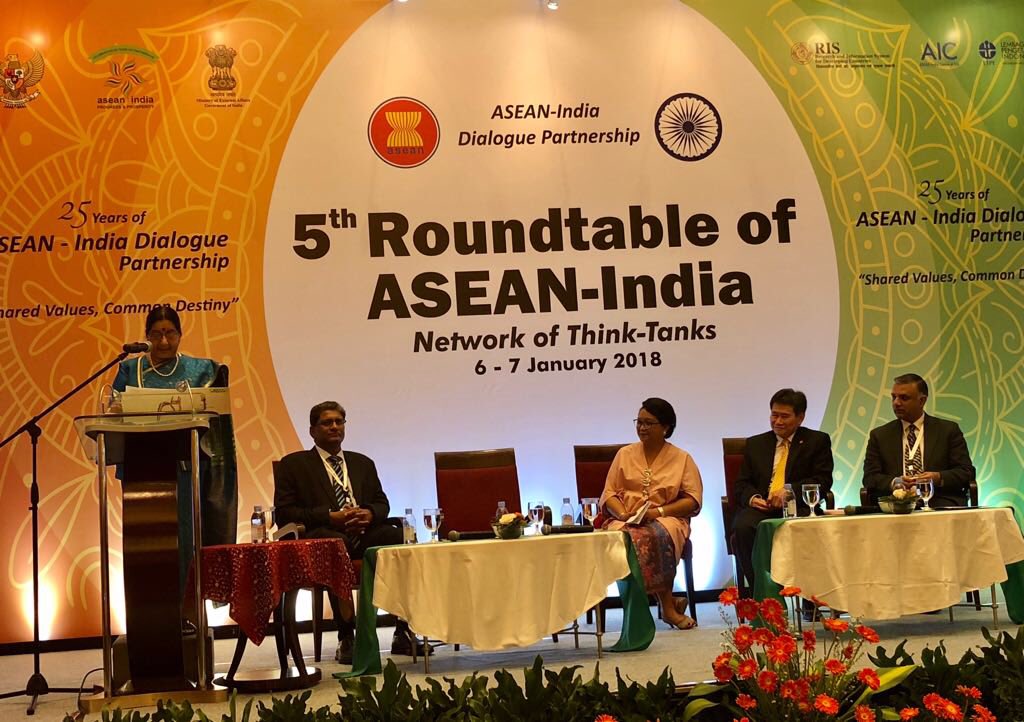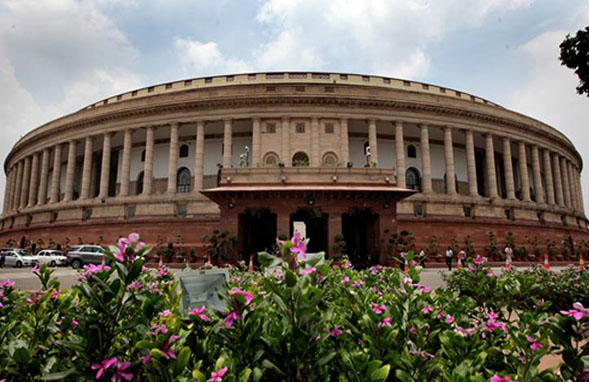

New Delhi: Foreign Minister Sushma Swaraj has said that for India, relations with ASEAN region is a key priority and the region is at the core of India’s Act East Policy.
Speaking at the 5th Roundtable of the ASEAN-India Network of Think Tanks, Minister Swaraj said that a deeper integration with the dynamic ASEAN region is an important aspect of our Act East Policy.
The minister, who was in Singapore to inaugurate the Pravasi Bhartiya Divas (PBD) of the Association of Southeast Asian Nations (ASEAN) countries, highlighted the importance of ASEAN region and stressed that the region was central to India’s Act East Policy.
Her comments came days before India hosts the heads of states of the Southeast Asian countries in Delhi on January 25 for the ASEAN-India Commemorative Summit, a high-profile display of its “Act East policy”.
ASEAN is India’s 4th largest trading partner, accounting for 10.2 percent of India’s total trade. India is ASEAN’s 7th largest trading partner. Trade is back on track and registered an 8 percent increase in 2016-17, as compared to the previous year.
“Investment flows have also remained robust. It is our continuous attempt to promote dialogue among ASEAN and Indian business and trade associations, to further enhance bilateral trade and investment. The establishment of a Project Development Fund will encourage Indian companies to develop manufacturing hubs in CLMV countries,” she said.
India has also offered a US$1 billion Line of Credit to the ASEAN region to enhance physical and digital connectivity.
While physical and digital connectivity initiatives are poised to seamlessly integrate India into a greater Indo-ASEAN community, the shared cultural heritage remains a strong emotional bond that already integrates India with the region.
Minister Swaraj said that the India engagement with South East Asia, in enhancing the strategic ties with ASEAN across 3 Cs. These 3Cs are Commerce, Connectivity and Culture.
Both India and ASEAN countries are maritime nations, with a rich and glorious history of maritime trade.
She further highlighted the vision behind SAGAR which was initiated by Prime Minister Shri Narendra Modi in 2015. SAGAR stands for Security and Growth for All in the Region and it recognizes the central role played by the seas and oceans around India in promoting sustainable economic progress in a secure and stable environment.
“The Indo Pacific region is increasingly seen as a connectivity pathway – much of the world’s trade passes through these oceans. These waters must not only get better connected, but remain free from traditional and non-traditional threats that impede free movement of people, goods and ideas. Respect for international law, notably UNCLOS, in ensuring this is, therefore imperative,” she said.
India and ASEAN share a common vision for global commerce and maritime domain and New Delhi is working closely with ASEAN in a range of activities: develop a Blue Economy, coastal surveillance, building off- shore patrolling capabilities, hydrographic services, and information sharing for increased maritime domain awareness.








